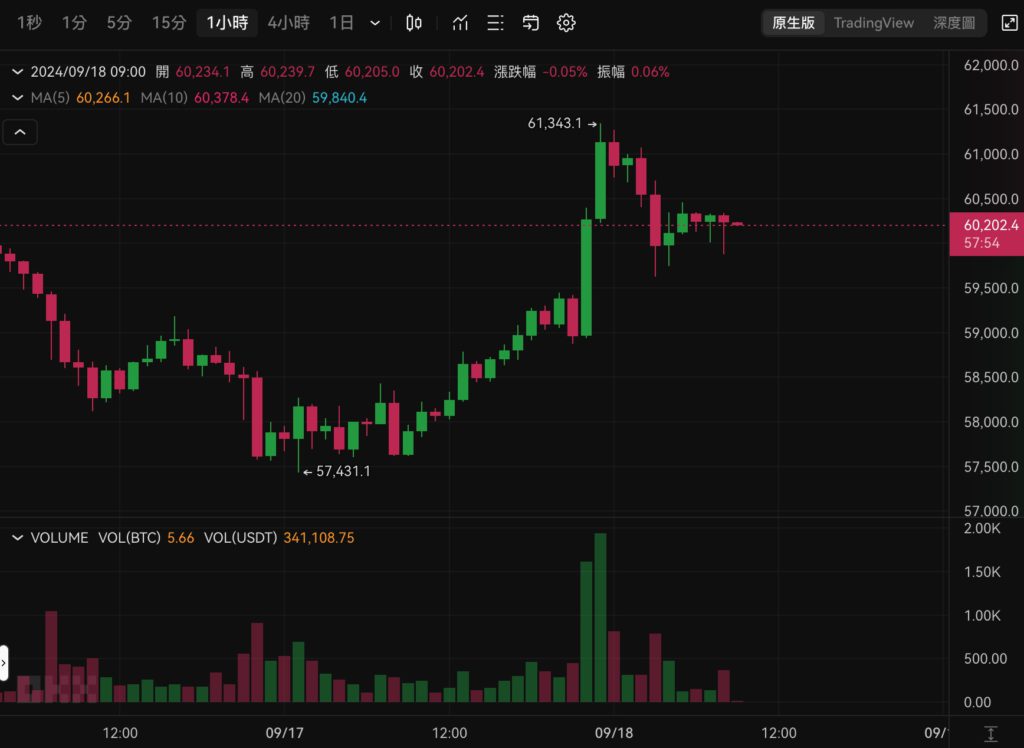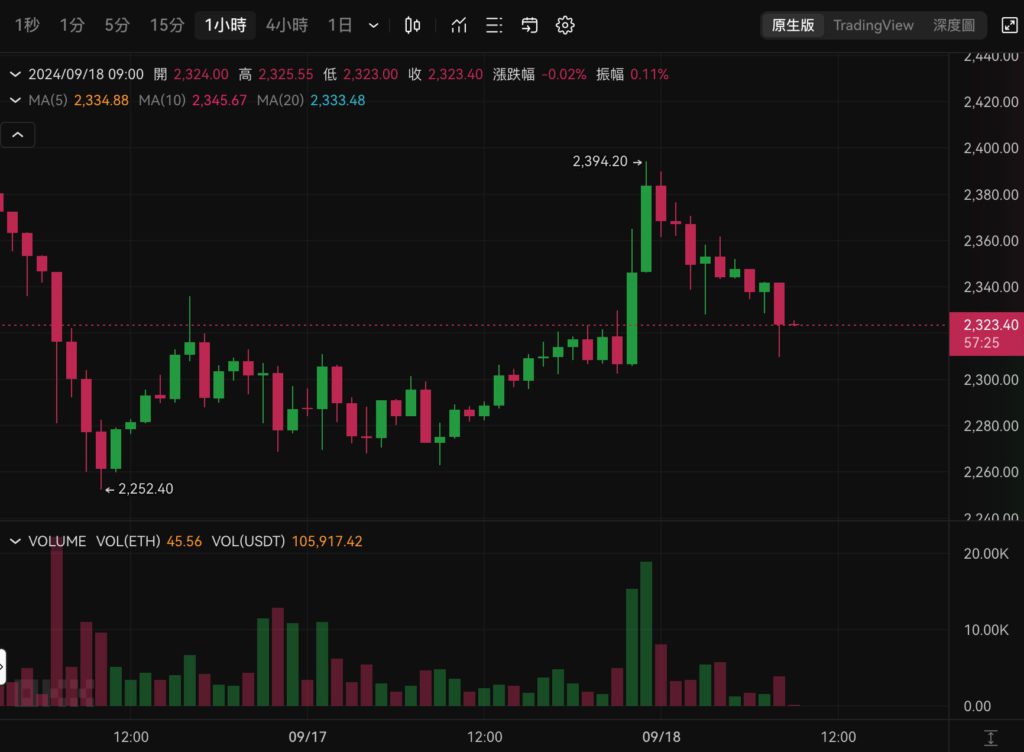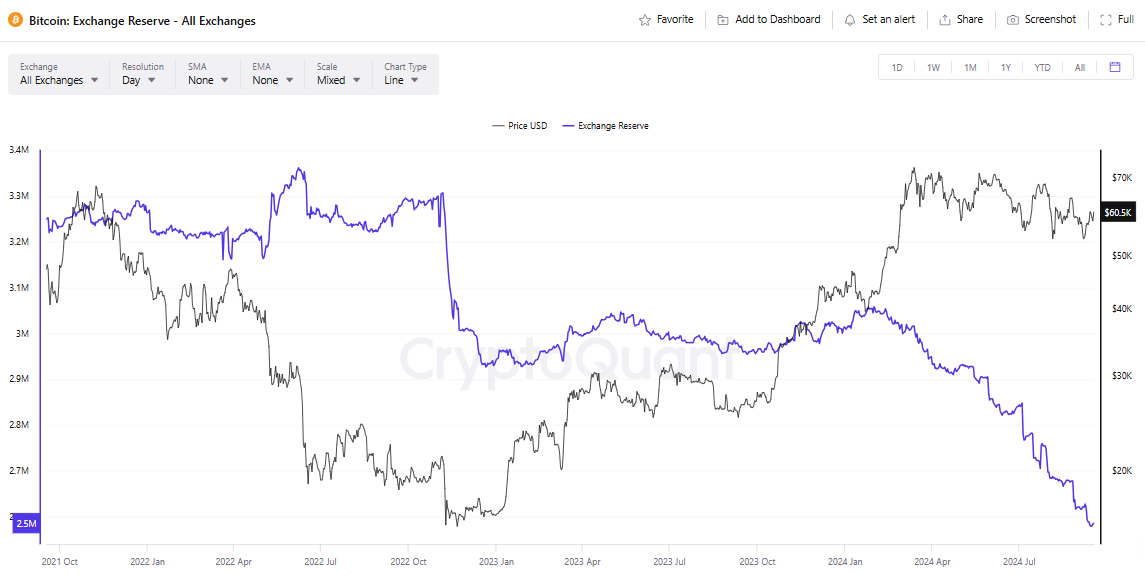Bitcoin continued to rebound after hitting a low of $57,431 at midnight yesterday (17th), and quickly rose after 10 p.m., once touching $61,343 at 23:15, the highest price since September.
However, subsequent selling pressure emerged and it failed to continue rising. It began to fluctuate and fall after 0:00 today (18th). The current price at the time of writing was $60,202, and the increase in the past 24 hours converged to 4.34%. Since the Federal Reserve will announce its interest rate meeting in the early morning of the 19th, please be careful of drastic price fluctuations.

The trend of Ethereum is close to that of Bitcoin but is relatively weak. It reached a maximum of $2,394 last night and then fell. As of this writing, it is currently trading at $2,323, up 2.32% in the past 24 hours.

The entire network liquidated US$134 million in the past 24 hours
In the context of Bitcoin's rise, according to Coinglass data, in the past 24 hours, the liquidation amount of cryptocurrency contracts across the entire network reached US$134 million, of which short positions accounted for US$82.39 million, and a total of more than 50,000 people were liquidated.
CEX Bitcoin deposit addresses drop to lowest level in recent years
According to a recent research report by CryptoQuant, the number of deposit addresses on Bitcoin exchanges has dropped to 132,100, the lowest point in years. To some extent, the number of investors selling Bitcoin on spot exchanges continues to decrease, which may indicate that selling pressure is easing.
Julio Moreno, head of research at CryptoQuant, told The Block:
Overall, lower exchange deposits may reduce selling pressure as there are fewer Bitcoins available for sale.

However, Moreno also added that when exchanges see fewer deposits, it may not just indicate less interest in selling Bitcoin, it may also mean less demand for Bitcoin overall as traders bet on the price rising. Less and less.
Some traders deposit money into derivatives exchanges to open long positions, betting on rising prices, and in this regard, the decline in deposits may also indicate reduced demand for Bitcoin.








